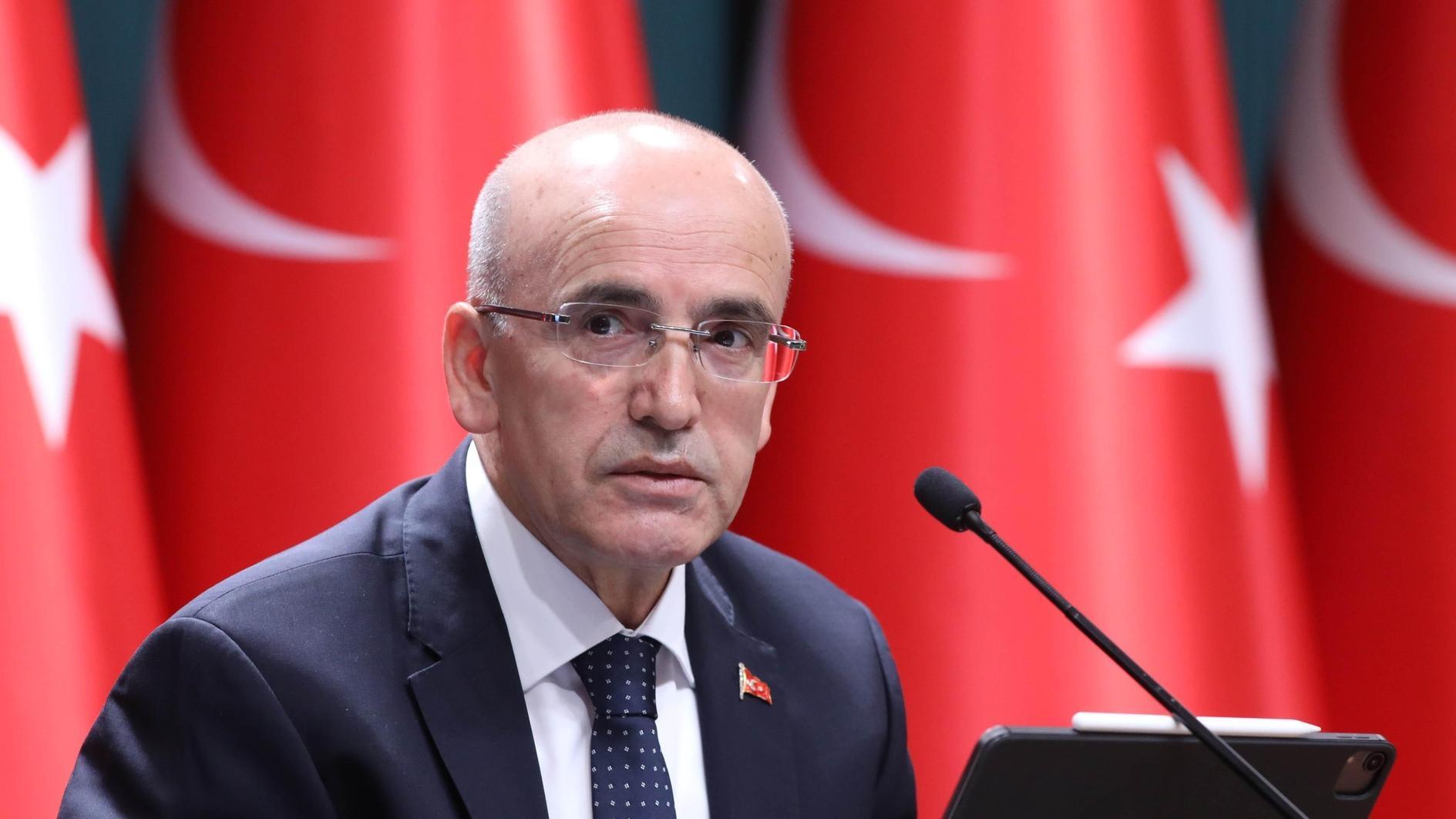
Finance Minister Mehmet Şimşek has reiterated the government’s commitment to the disinflation program, saying that inflation will continue to decline.
“We are determined to continue our program. Our goal is to minimize macro-financial vulnerabilities by reducing the current account deficit,” he said in a video message sent to the International Economy Summit on April 18.
Inflation will continue to decline, Şimşek said, adding that the impact of exchange rate pass-through on inflation would remain limited due to weak domestic demand.
Spending discipline in the public sector will be maintained, the minister reiterated.
Şimşek’s comments came a day after the Central Bank, in a surprise move, hiked its key interest rate, the one-week repo auction rate, by 350 basis points from 42.5 percent to 46 percent, pausing the easing cycle in December last year.
The bank also increased the overnight lending rate from 46 percent to 49 percent and the overnight borrowing rate from 41 percent to 44.5 percent.
The tight monetary stance will be maintained until price stability is achieved via a sustained decline in inflation, the bank said on April 17 in a statement accompanying the rate decision.
Monthly core goods inflation is expected to rise slightly in April due to recent developments in financial markets, while services inflation is likely to remain relatively flat, the bank said.
The annual inflation rate slowed to 38.1 percent in March, marking its lowest level since December 2021. The monthly inflation was 2.46 percent.
Recent developments in the markets, particularly the decline in oil prices, indicate that the current account deficit could be below the government’s target, Şimşek said on April 18.
“Our country's resilience against shocks has strengthened. We have reasons to be optimistic,” he said.
Commenting on the turmoil triggered by U.S. President Donald Trump, Şimşek said that uncertainty in global economic policies has increased more than ever mainly due to the rising protectionism stemming from the competition between the U.S. and China.
“In this protectionist environment, Türkiye is in a more resilient position compared to similar countries. Sixty two percent of our exports go to countries with which we have free trade agreements,” he said, noting that the decline in investors' risk appetite “is an indirect effect we are experiencing.”
“The relatively low tax imposed on Türkiye [by the U.S.] provides an advantage compared to our competitors in Asia, while the growing global need for defense presents an opportunity for Türkiye,” Şimşek also said.